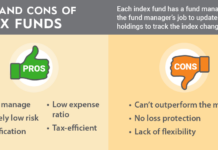Saving or investing? It’s a never-ending debate in personal finance management, especially now that many economies are struggling to recover from the Coronavirus pandemic. You probably have some money or are making enough money and have some left after expenses that you don’t know whether to save or invest.
We understand how overwhelming this decision can be. Saving, for starters, is a safe option with a credible banking institution. It gives you easy and fast access to your money. The problem is that this money earns little returns, and with a high inflation rate, your money loses its power over time.
Investing, on the other hand, can allow you to earn some return from your capital, which helps beat the inflation rates. The bad news is that financial markets can experience volatility for many reasons, like politics and natural causes. Negative impacts on the market can lead to underperformance, meaning your invested amount will not beat the inflation rate or earn you any returns. In some cases, individuals end up losing their invested capital.
So, which one of these suits you, and what should you choose? While the decision-making is solely on you and we all have different financial situations, here’s what you need to know to help you make an informed decision.
When To Save Money
Building an Emergency Fund
If this pandemic has taught us anything is that things can go wrong really fast, leaving us financially vulnerable. If you have no emergency fund, then saving a portion of your income until you have at least six months of expenses in a highly liquid and accessible account is the recommended thing to do.
An emergency fund will be there to cover your rent, utilities, and other necessary payments during emergencies like losing your source of income. An emergency fund can also help you cater to unexpected medical bills, rather than plunging yourself into debt.
Building a Retirement Account
Saving for retirement is the best way to avoid debts or living a straining financial life after hitting retirement age. While at this age there are some few jobs available for you, wouldn’t you want to rest and enjoy your money and life for the remaining of your life? If you build a retirement account, this is possible.
If your employer is in a position to match your retirement contributions, saving in a retirement account should be a goal. For example, if you contribute $100.00 to a retirement account and your employer is ready to match that, that’s free $100.00 you were not expecting to get. Also, do not forget that this money will be earning interest.
Have Mounts of Debt
If you’re swimming in massive debts like credit card and personal loans, saving to clear these debts should come first. Investing gets easier when you do not have debts accumulating high interests, which affects not just your financial position but also your credit rating.
If you have some money to spare, you can save the money to repay your debts using one of the debt negotiation strategies – asking for penalties and interest forgiveness from the creditor but repaying the principal amount.
Short Term Goals
If you have short term goals that require big capital, like buying a car, going on vacation, or getting some household equipment, the little money you have is better off saved than invested. Investing is ideal for any long term goals, that’s at least 5 years or more. This keeps you cushioned from market volatility which can happen within a short period of time. A longer investment horizon might help you recover your returns because markets tend to bounces back.
When To Invest Money
Long Term Goals
Investing is best for long term goals, like matching your employer’s retirement contributions. Where possible, add some extra money to your retirement contribution. The money will earn you interest in the long run, and it’s also tax-deductible in most countries. That means you can reduce your tax liability by deducting the extra retirement contribution amount.
If you have a medium-term goal, it’s easy to get torn between the two. You can invest if you are willing to take risks, but if you are not ready to absorb the market risks, you are better off saving money instead.
Already Have An Emergency Fund And Manageable Debts
If you already have an emergency fund and manageable debts, the extra money you have can go towards investing. Rather than having the money sit in a low-interest account that cannot beat inflation rates, investing in higher returns assets like stocks and bonds.
It Can Be Both
Sometimes, you do not have to choose between saving and investing. If you are in a good financial position that leaves you with enough money after paying utilities and debts, you can split your money between a savings account and an investment account.












